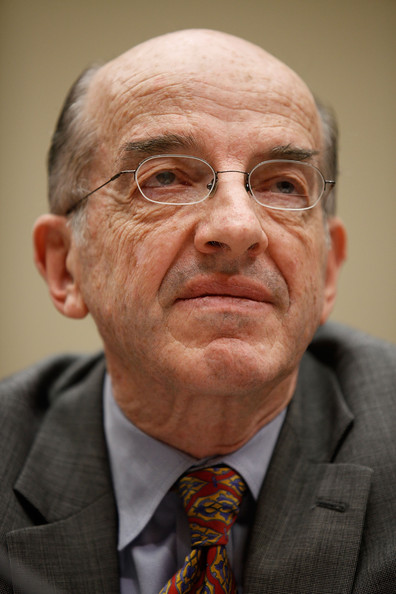My Turn to Opine on the 2022 Elections

Thursday, December 1, 2022
Digital Beat
My Turn to Opine on the 2022 Elections

A good friend told me that attempting to make sense of the 2022 election results was like trying to draw a contour map of a mountain landslide. Yet we all try. Pay a penny and pick your preference—interpretations of the elections are as common as pig tracks. Some say “It was great for Democrats because they kept the Senate.” Others: “No, it was great for Republicans because they won the House.” And from there, our election mavens and talking heads dig down into the myriad of campaign strategies and tactics, candidate idiosyncrasies, demographic changes, pollster accuracy, pundit accountability, and occasionally even issues, to prove their various conclusions. Don’t get me wrong; I think it’s fine. In fact, what follows is one more observer’s (mine) take on what happened, which, if even 10% right, would probably be as good as most. But let’s just hope that we soon venture beyond what may or may not have happened at the polls and instead find a way to tackle what should be front-and-center: solving the many challenges that are undermining the success of our democracy. More on that later. But first, some Copps ruminations on the 2022 electoral saga.
I don’t think the results were great for either party. The good news for Democrats, of course, is holding onto their slender Senate majority and defeating the many 2020 election deniers who went down to defeat, especially at the state elections machinery level. And there was surely good news on women’s rights and making Medicare available to more citizens in several state referenda, but this appears not to have been just a one-party result in several of those elections—it appears a goodly share of Republicans supported women’s rights and Medicare in the states. Also on the plus side, at least Congress did not turn into a monolith of opposition. But losing the House guarantees two years of poisonous Congressional hearings and investigations that will be Majority Leader McCarthy’s prime agenda. Exercising its Constitutional obligation to initiate appropriations for public programs will play second fiddle to skewering Hunter Biden and questioning everything the Executive Branch tries to do to clean up the mess that ex-President Trump left on Joe Biden’s plate. Ticket-splitting—which can be good or bad depending upon the extant political climate—seemed to accelerate this year. But in a climate like we live in now, it can be a brake on getting needed things done.
The most significant effect on political parties this year was the $16 billion estimated to have been spent on these elections, further entrenching the ability of big business and the special interests to have their way in Congress, the state houses, judgeship elections, and local community races. If we cannot find our way—very soon—to significantly reduce or eliminate the polluting and destructive power of money in our politics, democracy’s days are numbered. Unfortunately, I see no chance of cleaning this mess up in the next two years.
We are also told of the Democratic hope that the GOP House majority will be paralyzed because it is rent by so much factionalism. Such a claim dramatically under-estimates the power of the House leadership to keep its troops in line while they pursue their real priority—waging frontal assault on the Administration. It looks to me like anti-Biden politics will trump internal Republican squabbling in the “people’s House.” Nancy Pelosi showed us what her small majority was able to accomplish the past two years. A slim majority is still a majority, and we will be witnessing the manifold results of that very soon. As for the Democrats, nothing has changed much in the Senate other than disaster avoided, although the December 6 repeat contest in Georgia could give Senate Democrats a little more breathing room. Still, the Upper Chamber is hardly poised to lead us to significant democratic reforms. One thing it can do, though, is confirm the many nominations still pending, so as finally to fill the many slots in the Administration that have remained empty for nearly two years now. One of these long-pending, non-confirmed nominations is Gigi Sohn for a Commissioner slot on the Federal Communications Commission. There is no excuse for the shabby treatment she has received at the hands of the Senate Commerce Committee. Senate Leadership should confirm her NOW.
A word on polls and pundits. The former were more on-target than the latter. There was no red wave, to be sure, but most of the wave predictors were the pundit class doing its own interpretations of the polls. It also struck me that there was lot of “herd journalism” going on here. Every day or two, it seemed, some renowned journalist would issue a pronouncement from on high and that would be the day’s top story for much of the rest of media. By the way, the pundits’ daily emphasis on President Biden’s low polling numbers rarely mentioned that his rating was really not that far off from what Trump’s had been for almost his entire term in office.
My even bigger gripe with media coverage of this election cycle was its constant focus on horse-race reporting. Every morning in most newspapers, and every night on the TV newscasts, the big story was who’s up, who’s down, in the polls. An occasional poll story is fine, but when it’s to the exclusion of real issues and hard-hitting journalism, it robs campaigns of the information voters need to cast informed ballots. The root cause of this kind of coverage is big corporate media’s laser-like focus on entertaining rather than informing us. Democracy does not and cannot thrive on infotainment.
James Madison said it best: “A popular Government without popular information, or the means of acquiring it, is but a Prologue to a Farce or a Tragedy; or, perhaps both. Madison went on: “… a people who mean to be their own Governors must arm themselves with the power knowledge gives.” This should be media’s mission; obviously, it is not.
In sum, no one should be crowing very loudly. We can all (or mostly all) applaud the lack of polling place violence and some evidence that political extremism seems to have notched down on November 8. And we can welcome the fact that Donald Trump’s incessant moaning about his “stolen election” appears finally to be running out of gas—but his gas tank isn’t empty yet. As for an election that is really a change agent? This wasn’t it. It provided no greatly enhanced opportunity for confronting the issues that are holding our nation back; it gave us no governing majority; it provided no relief from the controlling and corrupting influence of big money to set or styme legislation; and it wasted precious time that is dwindling down for the preservation and progress of our beloved country.
Read what I have written not as a throwing up of hands, but as a call to action. Elections should never be seen as the end of the story, but as the beginning of a new chapter. What happens going forward is what counts. And what counts after this particular election is what we are able to accomplish through citizen action between now and November 2024 and beyond. I continue to believe that citizen organizing and grassroots action are what usher in positive change. After all, isn’t that how most of the great reforms across the breadth of our history were initiated? Civil rights, labor reform, women’s rights, healthcare, disability rights, the list goes on. They didn’t come as a gift from an altruistic Congress (sorry for the oxymoron); they came because grassroots pressure demanded them. Democracy is won not so much by what happens in particular elections; it is won by what happens between elections. And that, my friends, is up to you and me.
Michael Copps served as a commissioner on the Federal Communications Commission from May 2001 to December 2011 and was the FCC's Acting Chairman from January to June 2009. His years at the Commission have been highlighted by his strong defense of "the public interest"; outreach to what he calls "non-traditional stakeholders" in the decisions of the FCC, particularly minorities, Native Americans and the various disabilities communities; and actions to stem the tide of what he regards as excessive consolidation in the nation's media and telecommunications industries. In 2012, former Commissioner Copps joined Common Cause to lead its Media and Democracy Reform Initiative. Common Cause is a nonpartisan, nonprofit advocacy organization founded in 1970 by John Gardner as a vehicle for citizens to make their voices heard in the political process and to hold their elected leaders accountable to the public interest. Learn more about Commissioner Copps in The Media Democracy Agenda: The Strategy and Legacy of FCC Commissioner Michael J. Copps
The Benton Institute for Broadband & Society is a non-profit organization dedicated to ensuring that all people in the U.S. have access to competitive, High-Performance Broadband regardless of where they live or who they are. We believe communication policy - rooted in the values of access, equity, and diversity - has the power to deliver new opportunities and strengthen communities.
© Benton Institute for Broadband & Society 2022. Redistribution of this email publication - both internally and externally - is encouraged if it includes this copyright statement.
For subscribe/unsubscribe info, please email headlinesATbentonDOTorg






